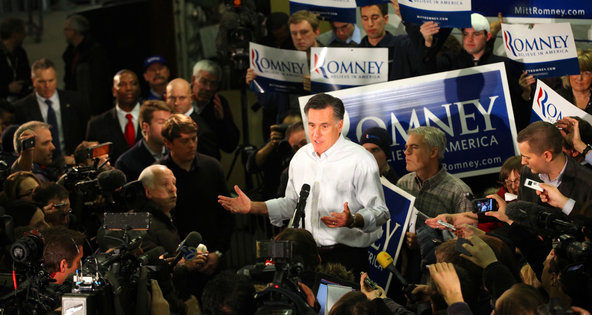WASHINGTON — Budget talks between the White House and Senate Republicans have gone nowhere since Congress began its summer recess, increasing chances of a fiscal stalemate that could lead to a government shutdown in October or the threat of a government default later in the fall.
Negotiators who had hoped for a summer breakthrough say the chances for a major deficit reduction deal are rapidly slipping away. While many members of both parties say they would like to avoid either a shuttering of the government as of Oct. 1 or a default caused by failing to increase the federal debt limit, no acceptable solution has emerged. Lawmakers say the consequences could be severe.
“It ends badly for the American people and the Republican Party if we shut down the government,” said Representative Reid Ribble, Republican of Wisconsin and a member of the House Budget Committee. “I hope grown-ups get in a room and behave like grown-ups, not simply actors on a political stage.”
In search of a compromise, a group of Senate Republicans are scheduled to meet with top White House officials next Thursday, the first such meeting since Aug. 1, when negotiators promised that staff and high-level talks would continue throughout the month.
“Nothing has occurred since that time, nothing whatsoever,” said Senator Bob Corker, Republican of Tennessee and one of the eight lawmakers involved in the talks.
Given the lack of progress, those involved say Speaker John A. Boehner will need to play a crucial role in finding an agreement. House Republican leaders consulted with their rank and file via a conference call Thursday night to sound out their ideas to avoid a fiscal crisis as early as Oct. 1. Mr. Boehner pressed gingerly for a straight short-term extension of funds to avoid an immediate government shutdown in October, but faced immediate opposition from conservatives demanding that funds be stripped from the health care law. One thought is to use a short-term spending bill to keep the government running into November, when Congress must raise the government’s statutory borrowing limit. That way, with both a debt default and government shutdown looming, Republicans could apply maximum pressure on the White House to either agree to scuttle President Obama’s health care law or accept significant changes in programs like Medicare and Social Security.
“We’re looking for leverage on a lot of things. Obamacare is just one of them,” said a senior House Republican leadership aide.
Mr. Obama personally pushed back hard on that idea Thursday and stuck to his position that he would not negotiate over the debt ceiling.
“We’ve seen a faction of Republicans in Congress suggest that maybe America shouldn’t pay its bills that have already been run up, that we shut down government if they can’t shut down Obamacare,” the president said in Buffalo. “That won’t grow our economy. That won’t create jobs. That won’t help our middle class. We can’t afford in Washington the usual circus of distractions and political posturing.”
Treasury Secretary Jacob J. Lew, speaking in the San Francisco area on Thursday, also called on Congress to increase the debt limit to avoid damage to the economy.
With so much political tumult roiling Republicans and more conservatives pushing to cut off financing for the health care law, both White House officials and Congressional Republicans are scaling back expectations that Senate-White House talks will produce the kind of grand bargain on the deficit that will win over House Republicans. Most of the federal government will shut down Oct. 1 unless Congress acts to keep money flowing. By late October or early November, Republicans believe the Treasury Department will exhaust its ability to borrow money if lawmakers fail to lift the government’s debt limit.
Senate Republican negotiators are divided over how big a deal they can accept. White House officials are increasingly concerned that any agreement they can strike will not fly in the House. And House Republicans have only just begun to address the pending showdown.
“We don’t know the end of the story here,” said Representative Chris Van Hollen of Maryland, the ranking Democrat on the House Budget Committee. “The way things are shaping up right now, it’s looking very messy.”
The so-called sounding board talks with the White House, led by Senator Johnny Isakson, Republican of Georgia, grew out of Mr. Obama’s overtures last winter toward Senate Republicans. Ultimately eight senators coalesced into a group to sound out the White House, report back to other senators and try to find a way forward on deficit reduction talks that foundered after automatic spending cuts known as sequestration kicked in March 1.
But even that small group has splintered. Senators John McCain of Arizona and Lindsey Graham of South Carolina, both defense hawks, have adopted a position that they would accept a small deficit deal — perhaps $200 billion to $300 billion — to cancel the next two to three years of sequestration, spare the Pentagon further cuts, and build good will for a broader deal.
Senators Corker, Isakson and John Hoeven of North Dakota have adamantly rejected that, saying they could never cancel spending cuts now for more gradual but less certain cuts stretched over a decade. That group has held out for a broader deficit deal that would shave trillions of dollars from the growth of entitlements like Medicare and Social Security.
Senator Ron Johnson, Republican of Wisconsin and the fiercest deficit hawk in the group, keeps insisting that the nation faces a cumulative deficit of $70 trillion over the coming decades, and negotiators should be working toward a $70 trillion solution.

Article source: http://www.nytimes.com/2013/08/23/us/politics/chances-of-a-deficit-deal-are-rapidly-fading.html?partner=rss&emc=rss


